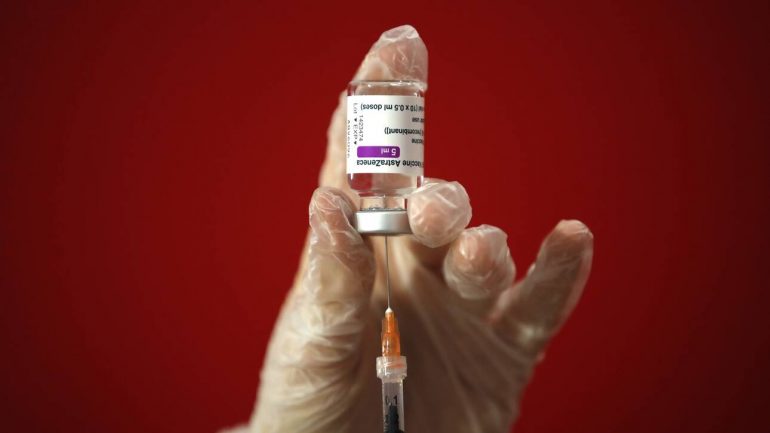An increasing number of European countries are suspending AstraZeneca vaccines following reports of thrombosis as the third coronavirus "scans" the EU.
Germany is suspending vaccination with the AstraZeneca vaccine, the Federal Ministry of Health announced recently, following a suggestion by the Paul Ehrlich Institute. The establishment of the Institute, according to BILD, is done in order to carry out further research, after the latest reports of side effects.
France decided today to "suspend for precautionary reasons" the use of the AstraZeneca vaccine, pending the opinion of the European Medicines Agency (EMA), tomorrow Tuesday, announced today the president of the country Emanuel Macron, during a press conference. The French president pointed out that he "hopes that the vaccination with this vaccine will resume quickly" "if the opinion of the European body allows it".
The Italian drug agency, Aifa, has decided - for precautionary reasons - to suspend the vaccine throughout the country. The decision was taken pending the final decision of the competent European authority, Coreper.
It is recalled that the European Medicines Agency (EMA) announced on Thursday that at present there is no indication of a risk of thrombosis in people who have been vaccinated against Covid-19 with the AstraZeneca vaccine.
WHO is reviewing reports of the AstraZeneca vaccine
The World Health Organization says its advisory committee is examining reports of thrombosis cases related to the AstraZeneca vaccine against Covid-19, but there is no evidence of a causal link between any incident and the vaccine.
"Once the WHO fully understands these incidents, the findings and any possible changes to the current recommendations will be communicated immediately to the public.
"To date, there is no evidence that the incidents are caused by the vaccine and it is important that vaccination campaigns continue so that we can save lives and reduce the serious disease caused by the virus," a WHO spokesman said Monday. , Christian Lindmeier, at Reuters.
Professor Andrew Pollard, director of the Oxford Vaccine Group, which developed the vaccine with the Swedish-British pharmaceutical company AstraZeneca, assured the safety of the AstraZeneca vaccine against coronavirus in Britain at the same time.
"There is" very reassuring evidence that there is no increase in blood clotting here in Britain, where most doses have been given in Europe to date, "he told the BBC.
According to the British network, he stressed the importance of continuing vaccinations against the new coronavirus, a disease that poses "enormous risks" to health and "if there are no vaccinations and we get out of the lockdown in this country, we will expect tens of thousands more deaths during this year ".
New assurances from Boris Johnson
This was followed by a new assurance on the safety of the vaccine from the British Prime Minister Boris Johnson.
Asked if he could reassure people that the vaccine was safe, Johnson replied: "Yes, I can."
"MHRA [the British drug regulator] is one of the strictest and most experienced bodies in the world. "They see no reason to stop the vaccination program."
"So we are still very confident about the program and it is fantastic to see it continue at such a fast pace in Britain," he said.
AstraZeneca: There is no increased risk of blood clots
AstraZeneca itself announced yesterday, Sunday, that it carried out a test on people who have been vaccinated with its vaccine against Covid-19, who showed no evidence of an increased risk of developing blood clots.
The test covered 17 million vaccinated people in the European Union and the United Kingdom.
"Careful monitoring of all available safety data of more than 17 million vaccinated persons in the European Union and the United Kingdom with the AstraZeneca vaccine against Covid-19 "There is no evidence of an increased risk of pulmonary embolism, deep vein thrombosis or thrombocytopenia in any given age group, sex, batch (vaccine) or in any country," AstraZeneca Plc said in a statement.
Authorities in Denmark, Norway and Iceland have suspended the use of the vaccine due to thrombosis cases, while Austria stopped using a batch of AstraZeneca vaccines last week. Ireland also temporarily suspended the vaccine on Sunday COVID-19 of AstraZeneca.
It is noted that the National Vaccination Committee came to the decision to continue the vaccinations with the AstraZeneca vaccine in Greece normally and based on the planning that has been done.
Source: CNN
